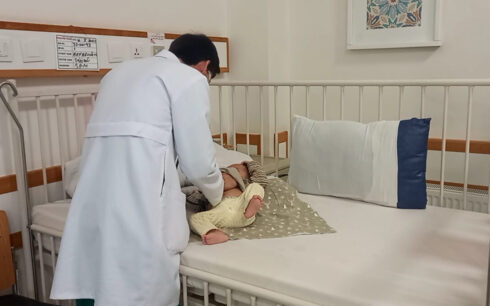HERAT, Afghanistan — Residents of Kashk district in western Herat province are grappling with a severe shortage of healthcare facilities and centers, particularly in remote villages.
Locals report that their children are falling ill, and in many villages, there are no medical facilities available for treatment, forcing them to bear high costs to seek medical care in cities.
Amina, a resident of the old Kashk district, shared that her one-year-old child contracted bronchitis due to cold weather, but the lack of a local health center means she must travel long distances for treatment. “I went to the clinic, they gave me two tablets, but the problem wasn’t resolved. Now, I have to take my child to the city center for treatment,” she said.
Similar concerns were echoed by residents of Badghis province, who criticized the inadequacy of health centers. They explained that even the small clinics in their villages are unable to treat basic illnesses, necessitating expensive and difficult journeys to city hospitals.
“My children have severe pneumonia, but the village clinic can’t help. They lack specialist doctors, and their painkillers don’t even work for adults,” said Zia Gul, a Badghis resident. Mahtab, another local, added, “It’s winter, and when my child had severe pneumonia at night, I had to take him to the city. But the long, cold journey only worsens his condition.”
The World Health Organization recently signed a nearly $7 million contract with Jaikah Japan to strengthen health services in various Afghan provinces. Kiyoshi Amada, the senior representative of the Japan International Cooperation Organization, expressed hope that this project would improve health for mothers, children, and others, contributing to human security in Afghanistan.
According to the World Health Organization’s December 2023 report, over 2,500 people in Afghanistan, mostly children under five, died from acute respiratory diseases within a year.





